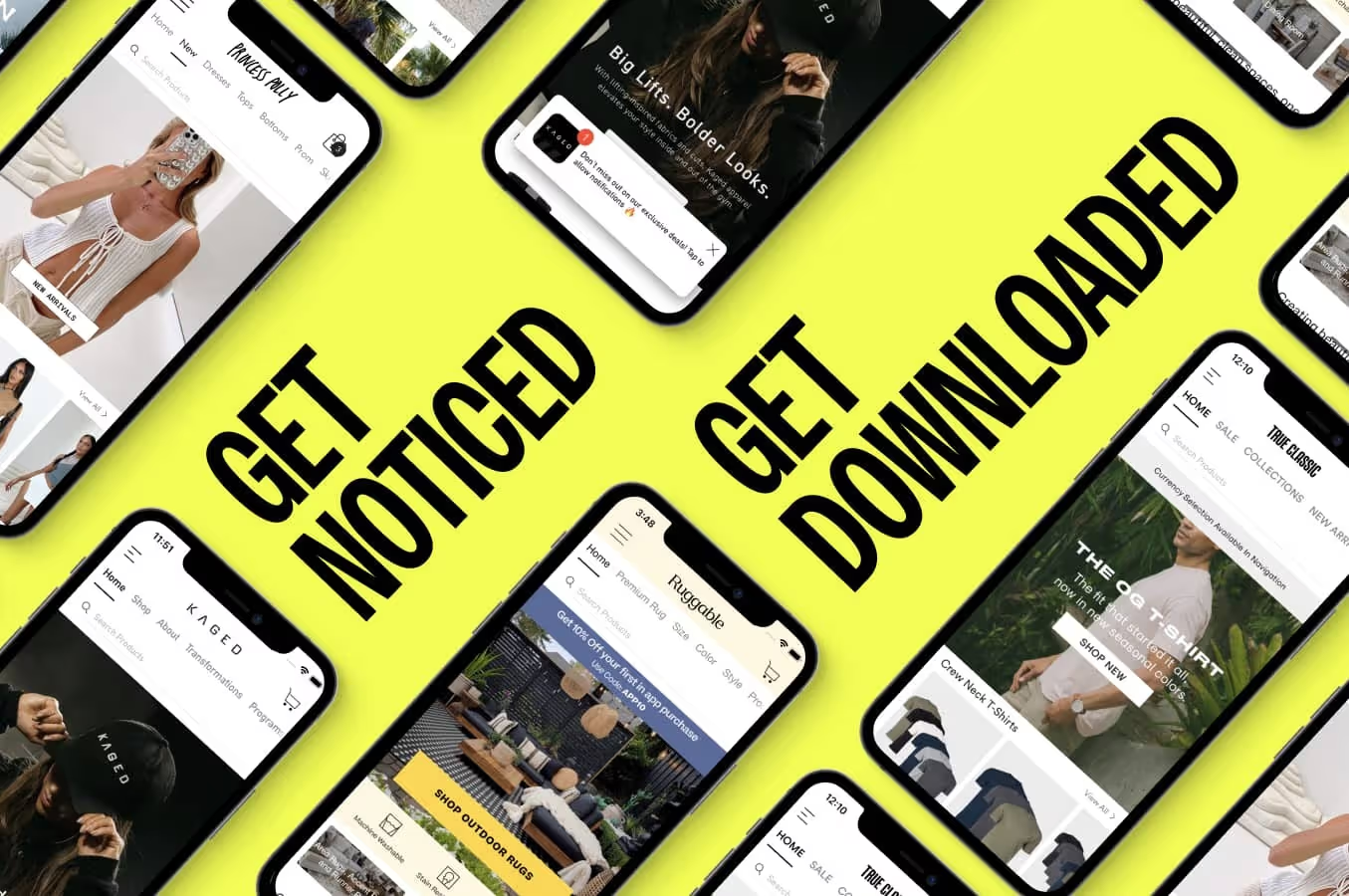
Earlier this month, Facebook and its family of apps were down for several hours, displaying error messages to viewers constantly refreshing their feeds. For over five hours, all activity halted: no posts, no engagement, no communication, and no ads were viewable. More than 3.5 billion people were affected, and reliances on the platform were quickly illuminated. For eCommerce stores, a very specific dependence was highlighted: the need to run ads via Facebook to acquire and re-engage shoppers.
Questions and discussions quickly emerged: Can we expect more outages? What does the future of advertising look like if these platforms aren’t reliable? How can brands independently reach their audiences? The essence of these existential eCommerce questions comes down to one clear need: the ability to reach shoppers without Facebook.
Here are four reasons why mobile apps are the ideal solution to unpredictable outages and overwhelming reliances on third-party advertising platforms:
1. You need to be able to directly access your audience—whenever you want.
When it comes to acquisition and retention, the majority of Shopify stores heavily rely on Facebook and Instagram. Take this year’s holiday sales, for example. In a recent article, Shopify reported that 82% of Shopify merchants are planning to market their BFCM promotions through Facebook and Instagram this year.
When Shopify merchants rely on another platform to reach their audience, they relinquish control and freedom to access said audience on their clock—particularly when such platforms completely shut down.
The antidote? Incorporating owned marketing into their omnichannel mix. By having an owned sales channel like a mobile app, stores have the ability to send unlimited push notifications directly to their shopper’s phones. Those messages occupy prime real estate with guaranteed visibility and are free to send to whoever, whenever—without shutdowns standing in the way.

2. You need to access your customers with guaranteed viewership without paying a middle man.
When it comes to reaching your shoppers, you shouldn’t have to pay to play. During BFCM, for example, bids to run ads on Facebook are outrageously high across all verticals, as Facebook realizes the advertising dependency eCommerce stores have on its platform.
Still, despite holding the key to a store’s target audience, Facebook does not guarantee that those who are delivered an ad will actually view it—yet brands continually pay to run ads on Facebook for a chance at exposure. We refer to this “pay to access” dichotomy as renting your audience, as opposed to owning them.
With a mobile app, Shopify stores don’t have to pay a third party for access to their audience.
Shoppers who download their app and opt-in to receive push notifications are accessible directly—waiving the need to go through another platform to advertise their brand. That is the key benefit to owned marketing, as opposed to paid marketing: actually owning the space in which you reach your customers.

3. Your retention and engagement rates will start to depend on owned marketing vs paid marketing.
Reaching new audiences and marketing your brand via Facebook will consume a grip of eCommerce marketing budgets, but engaging previous customers simply shouldn’t be costly. By enticing shoppers who have previously transacted with your store to download an app (which is uncomplicated when a discount is offered in exchange), stores can build a list of consenting shoppers who are actively interested in hearing from their brand.
Merchants can send push notifications to these already-inclined customers to reconnect with them, increasing engagement and retention without ever leveraging a paid marketing campaign.
And as the Facebook outage revealed, paid marketing is not always reliable.
Now and into the future, owned marketing will be a critical component of re-engaging shoppers. Acquisition strategies will continue to correlate with paid marketing, whereas retention and engagement strategies will correlate with owned marketing. This prediction is rooted in ROAS trends—owned marketing is a less expensive strategy and returns a high conversions rate, and a dramatic increase in annual GMV.

4. You shouldn’t be financially penalized for reaching your own customers.
Don’t get us wrong—continuing to run ad campaigns on Facebook is the smart thing to do, and likely your conversion rates and traffic largely hinges on them. What’s not so smart is to put all of your eggs in one basket. Diversifying the avenues in which you can reach your customer will better serve you in the long run. Push notifications, for example, are free to send and have unlimited reach.
Essentially, whoever has opted into receiving them is eligible to be sent a push, at no cost to your brand. This is the way things should be—the customer already knows you and has transacted with you. Idealistically, you would have the freedom to reach them again at your discretion. Luckily with push notifications, retargeting idealism is reality.
The future of repeat Facebook outages is unclear, but the gravity of our reliance on the platform is unambiguous. If our strategies for acquiring new shoppers are contingent upon the success of our ads, then our ads need to be reliable, consistent, and available. The shutdown has taught eCommerce a valuable lesson—expanding and diversifying the channels in which we acquire and re-engage new and old shoppers is a paramount priority. Our budgets—and businesses, relies on it.
















